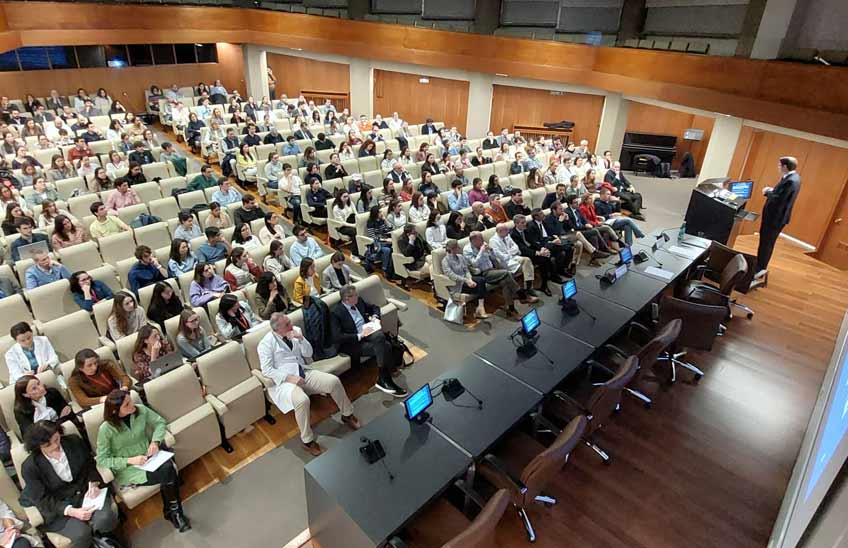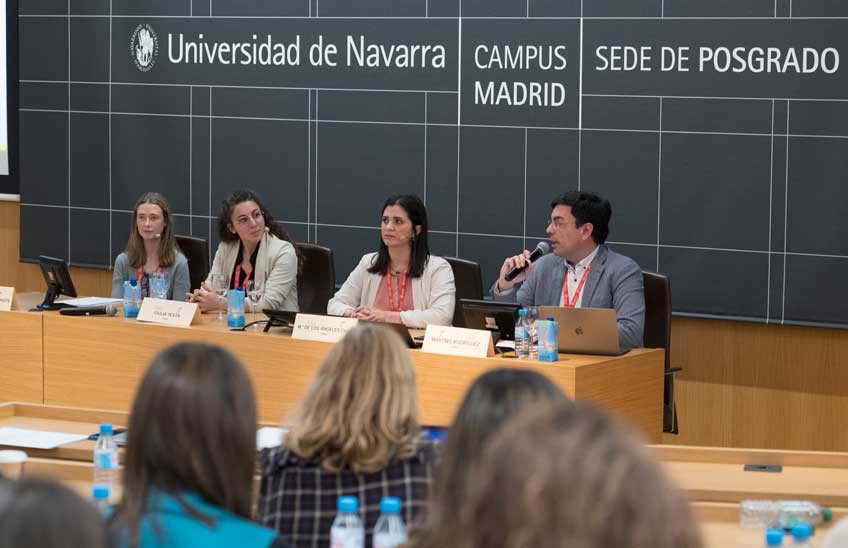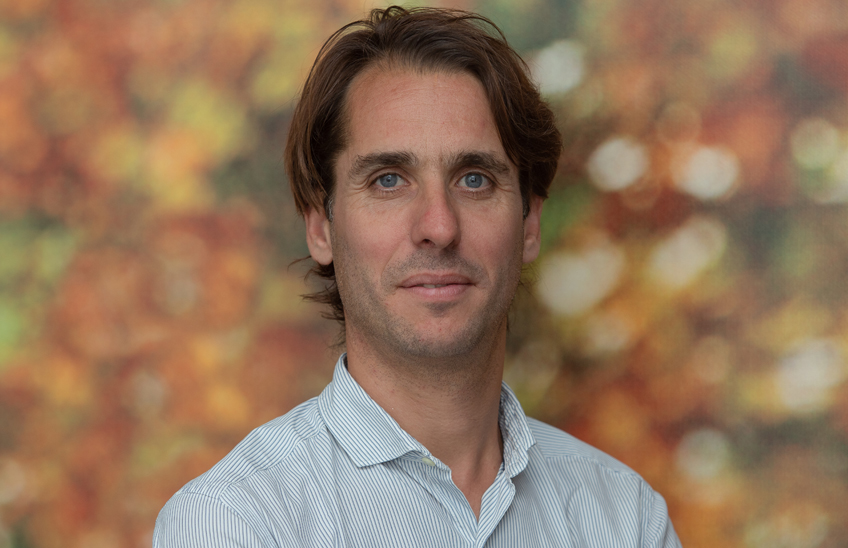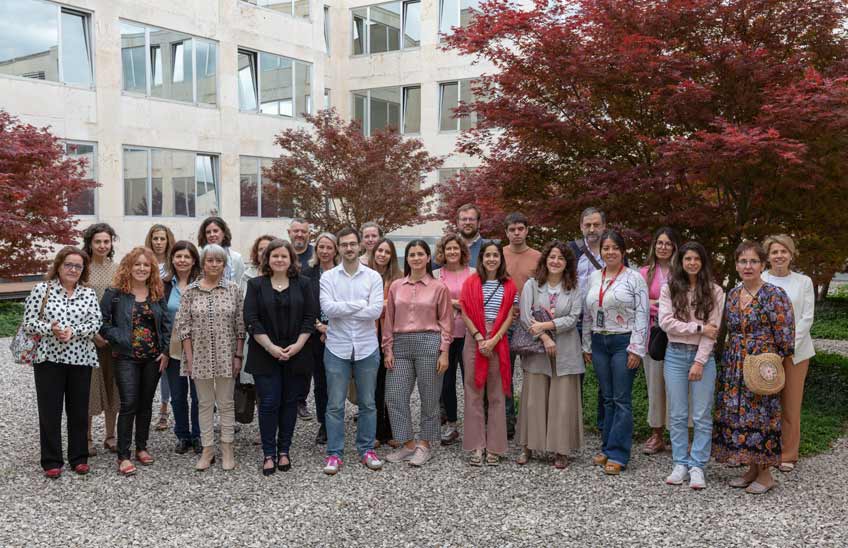Life satisfaction, health, purpose, virtue and close relationships are key to fulfillment staff, according to a Harvard speaker .
Tyler J. VanderWeele, director of the Human Flourishing Program, presented at the VIII ICS Lecture scientific evidence on the components of the human development and suggested promoting policies, laws and incentives that take them into account.

FotoManuelCastells
/The ICS Lecture given by director of Harvard's Human Flourishing Program is part of the challenge ICS 22-23, 'Youth, Relationships and Psychological Well-Being'.
14 | 03 | 2023
Happiness and life satisfaction; mental and physical health; meaning and purpose; character and virtue; and close social relationships are the fundamental elements for fulfillment staff. This was presented at the University of Navarra by Tyler J. VanderWeele, director of the Human Flourishing Program of Harvard University (USA), during the VIII ICS Lecture on Humanities and Social Sciences of the Institute for Culture and Society (ICS).
At campus he spoke about the proposal of his program at research, which is characterized by a broad and interdisciplinary approach . As he explained, his team's perspective contributes to a more enriching vision of human fulfillment: "A state in which all aspects of a person's life are well". He stressed that it is "an ideal of what we seek as individuals and what we should seek as a society".
"These components have in common that they do not exhaust the realization staff, but are part of it; that they are practically universal and constitute an end in themselves," he pointed out. He added that financial and material resources must be adequate "to sustain these elements over time".
Along with these fundamental keys, he has highlighted that the longitudinal programs of study emphasizes the importance of the family, the work, the Education and religious communities as settings where the conditions for plenary session of the Executive Council development staff most often exist.
The specialist also referred to interventions from positive psychology that contribute to human fulfillment: practicing gratitude, performing acts of kindness and using character strengths to bring out the best version of oneself. "It is easy to put them on internship by oneself and randomized trials have shown that they improve several aspects of happiness and health," he added.
However, he added that these activities have lesser effects in terms of purpose, character and relationships. "For these other dimensions we need communities and long-term commitments deadline with personal relationships," he has pointed out.
Dialogue between disciplines
Professor Tyler emphasized the need to promote Structures, policies, laws and incentives that take these determinants into account, in order to achieve prosperous societies worth living in. "Many times -he has said-, policies are conceived from an economic perspective, but considering also the perspective of human fulfillment financial aid to achieve different results in our societies".
The Human Flourishing Program studies in an interdisciplinary way the keys to staff, bringing together Humanities, Philosophy, sociology, political science, Economics, Education, psychology, medicine, public health and other empirical sciences.
Professor VanderWeele has advanced that the future of the research on human development includes community well-being, spiritual well-being, incorporation of non-Western perspectives and adaptation to specific contexts or groups -adolescents, patients with advanced diseases...-.
The ICS Lectures on Humanities and Social Sciences are a series of conferences organized annually by the ICS. Given by internationally renowned researchers, the aim of these lectures is to present to the University of Navarra and the general public goal some of the topics that are being researched in the different projects of high school. In this edition, the Lecture is framed in the challenge ICS 22-23, 'Youth, relationships and psychological well-being'. It is aligned with the Strategy 2025 of the University of Navarra, within 'Health and Wellbeing'.




